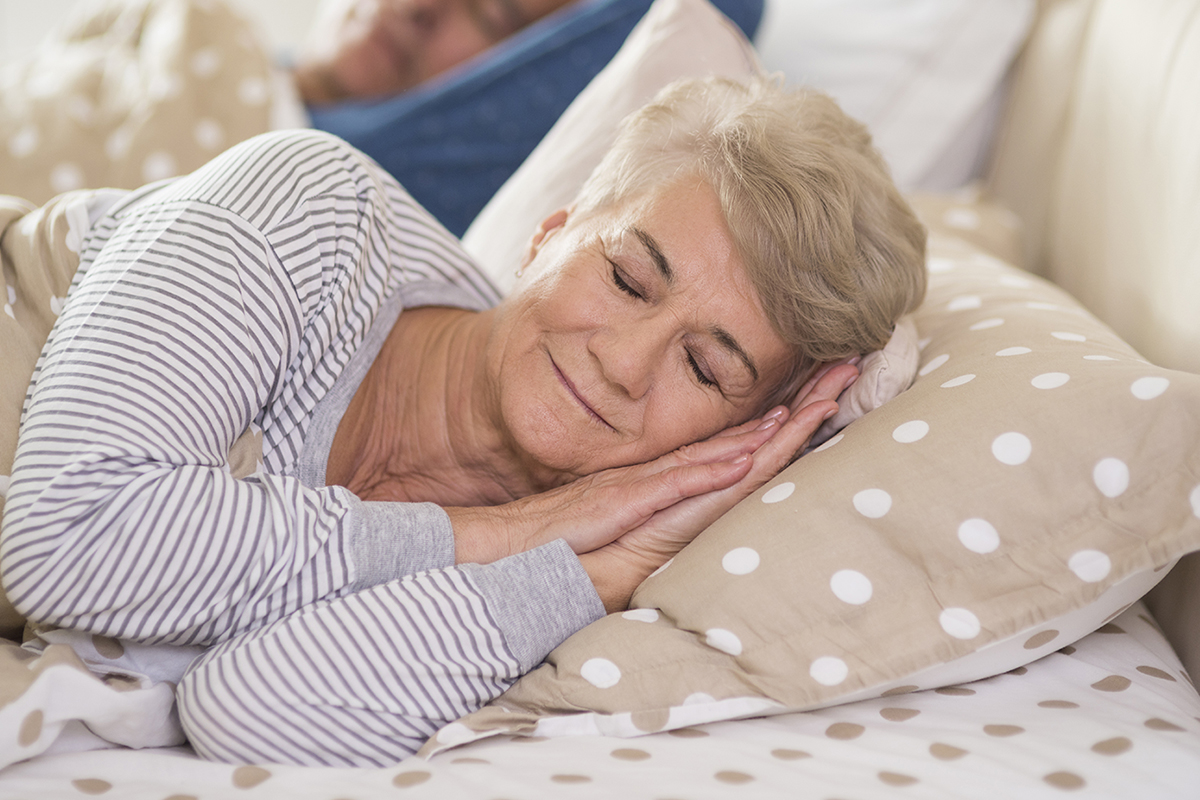It Is a Core Component of Satisfactory Health
Did you start yawning mid-morning today or have you seized the day with gusto? Your sleep habits make a difference in more than just your energy level.
Sleep is a core component of satisfactory health, just like regular exercise and proper nutrition. Sleep helps your body repair itself and significantly impacts heart health.
Sleep Shortage Has Impact on the Heart
Studies show people who average less than seven hours of sleep are at higher risk for heart disease, heart attack and stroke because lack of sleep impacts glucose metabolism, blood pressure and inflammation. Without prolonged, deep sleep, certain chemicals that lower blood pressure and heart rate can’t be released. This leads to higher blood pressure and other cardiovascular issues over time.
A lack of sleep can cause many health problems that affect the heart, such as:
High blood pressure: Normally, blood pressure lowers while you’re sleeping. Yet if you’re not getting enough pillow time, your blood pressure stays higher longer, which can lead to heart disease and stroke.
Type 2 diabetes: Studies show getting adequate sleep helps people better control blood sugar levels to prevent damage to blood vessels.
Obesity: Lack of sleep can affect the part of the brain that controls hunger. In addition, people who are sleep deprived have a slower metabolism and difficulty losing weight. This can cause a domino effect of not wanting to exercise and craving unhealthy foods, all which are detrimental to heart health.
Sleep Barriers
While sleep needs vary, the National Sleep Foundation says older adults need 7-9 hours of sleep per night. But that can be a challenge for some.
Insomnia, which is trouble falling asleep and/or staying asleep, affects one in two adults occasionally, and one in 10 frequently over a long term. This insufficient sleep can lead to unhealthy habits that negatively affect the heart, such as high stress levels, lack of physical activity and poor food choices.
Studies show it can be harder for men and women over 65 to stay asleep throughout the night. Certain biological changes such as a shift in the circadian rhythm of older adults can make you sleepy by early evening and wake up too early in the morning.
Medical conditions, such as sleep apnea, in which breathing repeatedly starts and stops during sleep, or gastrointestinal and respiratory problems can also cause insomnia. Sleep apnea can be particularly dangerous. One study found men with severe sleep apnea were nearly 60% more likely to develop congestive heart failure.
Other causes of disrupted sleep may be chronic pain, depression, dementia, medications or lifestyle habits. It’s important to get to the root of sleep problems with your doctor’s help so the issues can be addressed.
The Refreshing Benefits
A good night’s sleep leaves you feeling refreshed and positive. It also lowers your stress hormones, revs up your immune system, increases focus and alertness, reduces heart attack risk, boosts metabolism and decreases depression and anxiety. Clearly, catching enough Zzzzz’s is well worth the effort.
How to Get Better Sleep
Follow these steps to ease you into a sounder slumber:
- Go to bed at the same time each night and wake up the same time each morning.
- Establish a bedtime ritual. Wind down with a warm shower or bath, drink herbal tea or read, pray or meditate to ease you into restful sleep.
- Avoid cell phone, computer or tablet use within two hours of bedtime.
- Move your clock so it’s facing away from you.
- Exercise every day, but not within an hour of bedtime.
- Avoid food or drink, especially alcohol, caffeine and foods high in fat and sugar, a few hours before bedtime.
- Limit naps or make sure they are early in the day.
- Sleep in a cool, dark, quiet place.
- If you awake for more than 20 minutes, get out of bed and do something relaxing such as reading until you feel sleepy again.
Sleep Well at McKnight Place
McKnight Place Assisted Living & Memory Care residents enjoy living in elegant, spacious suites decorated with their own personal belongings for a warm, comfortable feeling of home. With unparalleled service, the community offers independence, combined with extra attention and care in a safe and secure environment.
Come See For Yourself
For more information or to schedule a personal tour, please call 314-993-3333 (Assisted Living & Memory Care) or 314-993-2221 (Skilled Nursing).

